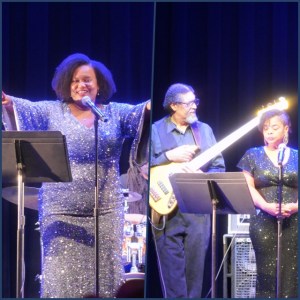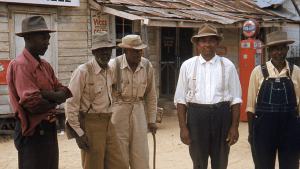By Megan Sayles,
AFRO Business Writer,
msayles@afro.com
Both PBS and the John F. Kennedy Center for the Performing Arts (Kennedy Center) celebrated acclaimed anthropologist and author Zora Neale Hurston this January.
On Jan. 17, PBS released “Zora Neale Hurston: Claiming a Space,” a biographical documentary about the late writer whose work defied the notions of race, gender and racial superiority in the anthropology field that characterized the 19th century.

Co-founder of minority- and women-owned The Film Posse, Tracy Heather Strain directed the movie, and Cameo George executive produced it.

Then, on Jan. 20, the Kennedy Center commemorated the literary great’s birthday on the Millenium Stage with song in “Zora Past the Sun,” a musical tribute performed by Liberated Muse.

The multi-disciplinary arts group, led and founded by Khadijah Ali-Coleman, seeks to spotlight the experiences and stories of people across the African diaspora with music, theater, spoken word and film.
Born on Jan. 7, 1891 in Notasulga, Ala., Hurston grew up in Eatonville, Fla., the country’s first incorporated Black township. There, she witnessed an abundance of Black achievement, where African-American men were leading local government and African-American women oversaw Sunday school at the churches, according to her website.
In 1917, Hurston came to Baltimore and attended Morgan College for high school.
She later went to Howard University and Barnard College to obtain her bachelor’s of arts degree.
As an anthropologist Hurston chose to study her own race, which defied the study area’s standards. Typically anthropologists were required to remain detached and objective from your subjects.

Hurston traveled alone through the American South and the Caribbean documenting the lives of African Americans in rural communities, according to her website.

Her most renowned work, “Their Eyes were Watching God,” was a fictional novel released in 1937 that told the story of Janie Crawford and her journey through three marriages that were distinguished by poverty and purpose.
It’s considered one of the most esteemed writings of the Harlem renaissance, and Hurston is still recognized today as one of the most influential voices of that time period.
Hurston died on Jan. 28, 1960 from a stroke at the age of 69.
Megan Sayles is a Report for America corps member.
Help us Continue to tell OUR Story and join the AFRO family as a member –subscribers are now members! Join here!
The post PBS and Kennedy Center honor the legacy of literary and cultural icon Zora Neale Hurston appeared first on AFRO American Newspapers .











